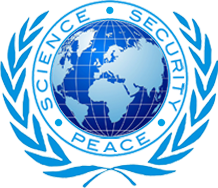Endorsements from Independent Scholars
Experts in the field of conflict management broadly accept that acute societal stress is a primary driver of crime and social conflict. More and more leaders similarly understand the critical importance of defusing acute societal stress in areas of potential conflict—and are impressed by the demonstrated power of the Brain-Based Approach to Peace to achieve that.
Below are selected comments by foremost leaders in the field of conflict management. There are many more such leaders who support the Brain-Based Approach, including more than 50 who appear as authors in the Selected References section.
“This work . . . deserves the most serious consideration.”
“The claim can be plausibly made that the potential impact of this research exceeds that of any other ongoing social or psychological research program. The research has survived a broader array of statistical tests than most research in the field of conflict resolution. I think this work, and the theory that informs it, deserve the most serious consideration by academics and policy makers alike.”
—David Edwards, Ph.D., Professor of Government, University of Texas at Austin
“We have to take these studies seriously.”
“In the studies that I have examined on the impact of the Maharishi Effect [Brain-Based Approach to Peace] on conflict, I can find no methodological flaws, and the findings have been consistent across a large number of replications in many different geographical and conflictual situations. As unlikely as the premise may sound, I think we have to take these studies seriously.”
—Ted Robert Gurr, Ph.D., Emeritus Professor of Government and Politics,
University of Maryland
“The work is sound.”
“The hypothesis definitely raised some eyebrows among our reviewers. But the statistical work is sound. The numbers are there. When you can statistically control for as many variables as these studies do, it makes the results much more convincing. This evidence indicates that we now have a new technology to generate peace in the world.”
—Raymond Russ, Ph.D., Professor of Psychology, University of Maine;
editor, Journal of Mind and Behavior
“This research . . . demands action.”
“I have been following the research on the Maharishi Effect [Brain-Based Approach to Peace] as it has developed over the last twenty years. There is now a strong and coherent body of evidence showing that [this approach] provides a simple and cost-effective solution to many of the social problems we face today. This research and its conclusions are so strong, that it demands action from those responsible for government policy.”
—Huw Dixon, Ph.D., Professor of Economics, York University, England

